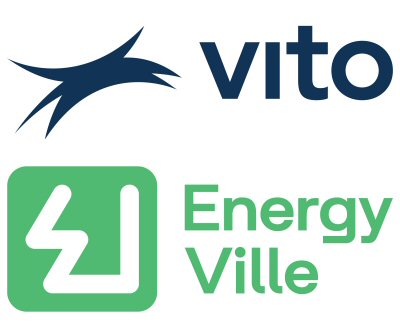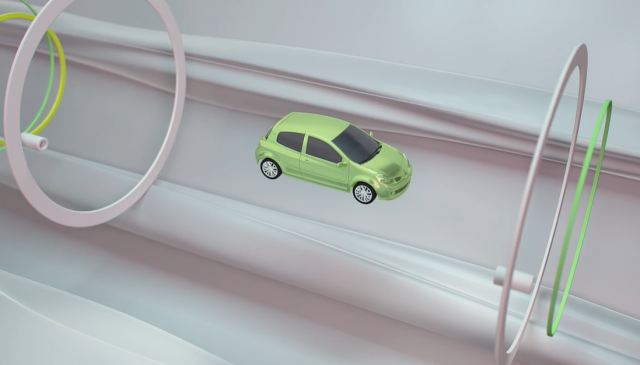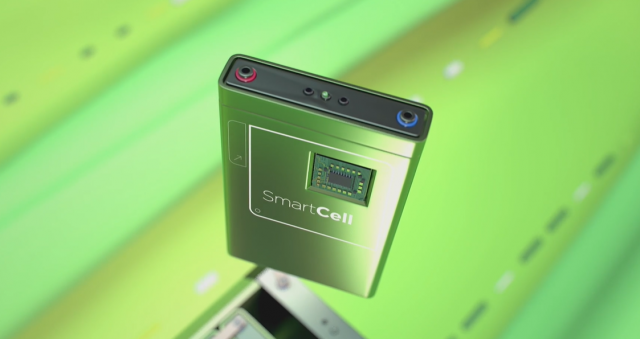Electric cars are full of electronics. They are used not only to assist driving and improve comfort but also to monitor the condition of the batteries and adjust their operation if necessary. This is done via the battery management system, the BMS. It ensures, for example, that all the individual battery cells remain neatly within the margins during discharging and recharging, guaranteeing the highest level of safety and the longest service life. In fact, the BMS constantly monitors the health and safety status of the battery and, based on this information, issues orders to adjust performance.
Currently, the BMS is usually located on top of the battery module, as an external brain consisting of a central computer, dense wiring and numerous sensors. This arrangement is partly due to the fact that the BMS is not developed by the battery manufacturer itself but is only placed on the modules later, by the so-called battery integrator. A battery pack is then typically made up of several modules.
From module to cell level
Not only does this mean that the BMS takes up extra space and weight in the electric vehicle, but the wiring is often quite complex and makes battery construction a time- and cost-intensive process. Moreover, this configuration complicates the possible re-use of the battery because the BMS often has to be replaced. 'But we lose the information about the characteristics of those cells,' says Serge Peeters of VITO/EnergyVille. And we need this information to guarantee safety and to be able to calculate their remaining lifespan, and therefore their residual value.
With so-called smart battery cells, these problems can be solved. The 'intelligence' of the BMS is spread across the module, embedded in the individual cells. In smart cells, the hardware of the BMS is directly linked to the individual cells,' says Peeters. This has several advantages, including a cost reduction due to much less complex wiring.'
Another advantage is that the cells are already 'smart' when they leave the battery factory. This means that their condition is monitored from the very beginning and the cells carry this information with them throughout their life cycle. This means they can be read out at any time, for example when a battery module is disassembled and the status of the individual cells is checked. Peeters: 'It will soon enable us, for example, to select the strongest cells or modules more quickly and use them again for the next application. This gives them a second life with an impressive remaining lifespan.
But that is for later because the smart-cell technology first has to be developed, fine-tuned and extensively tested and demonstrated - and this against a background of a rapidly developing and expanding range of battery applications. A first development step is currently taking place in the battery labs of VITO/EnergyVille, partly as part of European Horizon 2020 funding via the Current Direct and NAIMA projects. We are still in the early stages of development. In the past year, we have determined the specifications of the microchips and the microsensors with which the smart cells will be equipped. This was done in close consultation with battery manufacturers and integrators to see exactly what they want and what we can offer them,' says Peeters.
Autonomous European battery production
Much more than with today's battery cells, the BMS will be able to keep its finger on the pulse of the characteristics and performance of the smart cells during the various stages they go through in their life cycle - from cell assembly and module construction through the operational to the diagnostic phase. This last phase is part of the comprehensive reuse and recycling of batteries. Ultimately, the strict monitoring must become part of the so-called battery passport that each cell will possess, which will learn which materials it is made of, where and when it was produced (this is the 'static' information) but also how it has already been used and what impact this has had on its service life (the 'dynamic' information). Despite the decentralisation of BMS, there will still be a minimal central, overarching 'mother brain'. It is there that the data from the individual cells are translated into information at the system level.
The development of smart cells is in line with the current ambitions of the European Union to take back control of the value chains behind batteries - for any application, from electric transport and transportation to stationary grid storage and home batteries. 'The EU is doing this by taking a clear position and focusing on a few aspects, such as sustainability, quality (long life, high performance) and safety,' says Jeroen Büscher of VITO/EnergyVille. Our innovative solution can play an important role in all these aspects and thus form the backbone of an entire value chain. After all, better monitoring at the cell level results in a higher residual value for reuse, better performance and higher safety. Eventually, we will move towards a new economic model for batteries in which they last 15 to 20 years and in which the reuse of modules or cells plays a much more important role. Today in electric cars, most batteries are replaced after just nine years, although at pack level they often still have 80 per cent of their original capacity.
And so smart cells could be a way for European battery production to differentiate itself from Asian ones and become more independent from the current big players. This is strategically very important, but it takes time. It will take four years before we can be competitive, partly because of our focus on cost reduction, longer and more optimal use and more recycling. It is even possible that thanks to this form of smart innovation, we will eventually become cheaper than Asia,' says Büscher.


